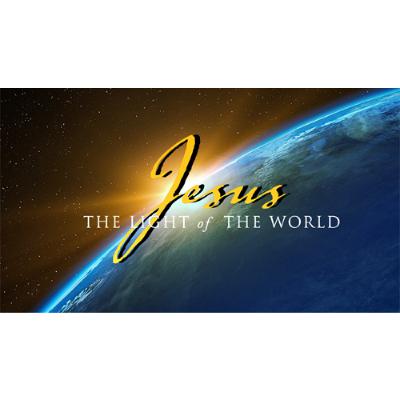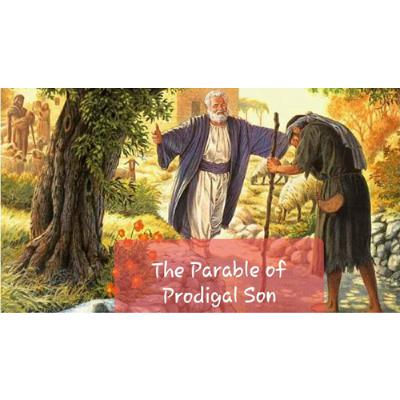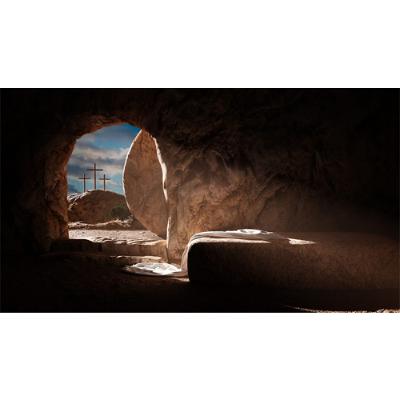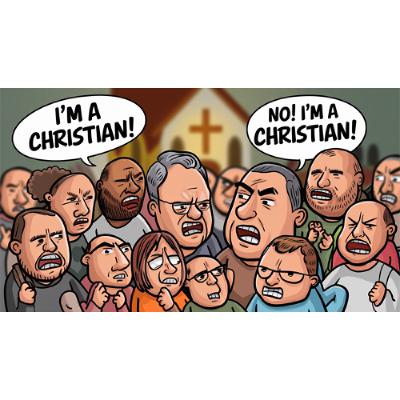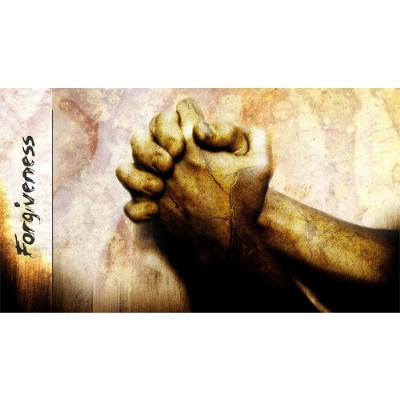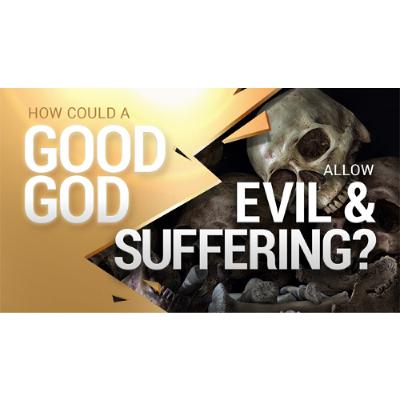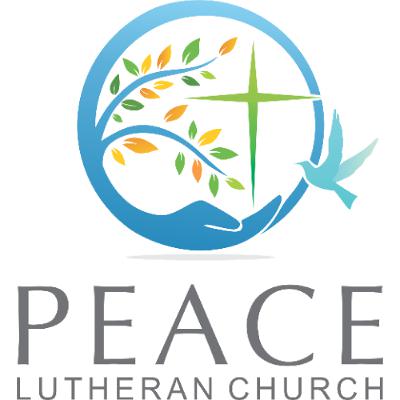Discover Pearls From Peace
Pearls From Peace

483 Episodes
Reverse
As we remember the saints who have gone before us in the faith, we know the picture of heaven is described as a place where there is no more pain, no more suffering, no more crying, no more mourning, and no more death. Those saints in heaven proclaim, "salvation belongs to our God." We too, by faith, are saints on earth, and while we still face pain, suffering, crying, mourning, and death, we can still proclaim "salvation belongs to our God" because of Jesus' death and resurrection, who will one day join all the saints, in heaven and on earth, to Himself.
On this Reformation Sunday, we take a look at the context of God's Word to find out some of the issues that led to the Reformation happening over 500 years ago. Much of that has to do with context, and how one reads the Word of God. As Martin Luther read through the book of Romans he found the truth of God's Word: for all have sinned and fall short of the glory of God, and are justified by his grace as a gift, through the redemption that is in Christ Jesus (Romans 3:23-24). We are justified not by our own works, rather we are justified by the words of Christ.
As we think about the use of our time, talents, and treasures during this October Stewardship month, we find ourselves hearing about the unrighteous judge and the persistent widow. The unrighteous judge does not give justice to the widow because justice is what she deserved, rather because he did not want to be bothered by her anymore. As we see that we are not always persistent with the use of our time, talents, and treasures to God, we see that God serves justice to us as Jesus goes to the cross.
As Jesus heals the ten lepers of their leprosy, only one returns, the Samaritan, to thank Jesus. That's not to say that the other nine lepers were not thankful for the healing, but they were going to show themselves to the priests like Jesus had told them to do. The Samaritan return to thank Jesus directly, because it was from Him that the healing came. We might think that there are certain things in our lives that ONLY we can do. But when it comes to our forgiveness, our salvation, that ONLY comes through Jesus.
As we think about the end of our life, whenever that may come, we want to hear those words from Christ, "well done, good and faithful servant." As we think about our lives, our struggles with sin and temptation, we may find that we are unworthy servants. Worthy to be called good, and faithful, and... worthy of eternal life. This is where Christ steps in and is good and faithful on our behalf, and through His death and resurrection makes us worthy. Worthy to be forgiven, worthy to receive eternal life, not because of anything we have done, but all because of what Christ has done.
The rich man, who is in torment (hell), sees Lazarus in paradise with Abraham. The rich man wants Abraham to send Lazarus back from the dead to warn his brothers so that they do not join him there. Abraham says, "If they do not hear Moses and the Prophets, neither will they be convinced if someone should rise from the dead." The Word of God is enough, and the Church is called to share the Word of God with others, so that they hear, believe, and receive eternal life. This is the work of Peace Lutheran Church. This is the work of those who serve the people of Sachigo. Bringing the Good News of peace and joy of the Gospel of Jesus Christ to the young and old of our hurting and troubled world.
When we hear the Parable of the Dishonest Manager, it makes us think the emphasis is on the one after whom the parable is named. Similar to the Parable of the Lost/Prodigal Son (which takes place right before this one). Sometimes what we think a parable is about, isn't always what the parable is about, because a parable (an earthly story with a heavenly meaning), is sometimes more about how God works in and through fallen humanity compared to how humans deal with their own selfish/sinful decisions.
The National Youth Gathering that took place from July 4-8 in Waterloo, ON where Peace sent youth and youth leaders to go and learn what it means to be UNBREAKABLE with the whole armour of God. And in the life of the church, the first place where we see that we would see the armour of God being placed upon us, is in the waters of Baptism, where God calls us as His own dearly loved child, marks us as ones redeemed by Christ the crucified one, clothes us with Christ, gives us the forgiveness of sins, rescues from death and the devil, and gives eternal salvation to all who believe, and we know that parts of the armour we hear about like faith and salvation are given in baptism. And it is HE who makes us UNBREAKABLE.
As we continue to look at divisions between those who believe in God and those who do not, and the divisions between Christian churches, we find that when we bear the cross, as Jesus says in Luke, it means that we will end up in opposition to some of the people closest to us: parents, siblings, spouses, children, ourselves. As we count the cost of standing firm on God's Word, it means we might lose all of those people we hold dear. Is it worth it? Sometimes it doesn't seem like it. But we must remember that Jesus counted the cost and still went to the cross for us.
Hebrews talks about leader who "are keeping watch over your souls, as those who will have to give an account." As we journey through this life as Christians, we see not only division between those who believe in God and those who do not, we also see divisions between Christian churches. As we have previously looked at Baptism, we now look to the Lord's Supper to find out whether "is" means "is" or if it means something else. We will also look at the role a pastor plays in the distribution of God's means of grace, as one who has to give an account.
Someone asks Jesus if only a few will be saved. Jesus responds with, "Strive to enter through the narrow door. For many, I tell you, will seek to enter and will not be able." It is faith in Jesus and His death and resurrection that gets us to heaven, and only that. He IS the narrow door, as the path to heaven goes through Him. As we journey through this life as Christians, we see not only division between those who believe in God and those who do not, we also see divisions between Christians and other churches. We will continue to explore some of those divisions.
The prophet Isaiah said that the Messiah, the Savior, would be called Prince of Peace. The angels sing of peace on earth the day Christ is born. Yet in the Gospel reading, Jesus tells us that He did not come to bring peace but division. Which is it? Peace or Division? Or can it both? Because the kind of peace that Jesus brings may not be what we think peace means, and it is in His coming as Savior and Messiah that He creates division between those who believe in Him (and have His peace) and those who do not. What does that division look like in our world today?
If someone says, "don't be anxious, don't worry" does that make you more anxious and more worried? Jesus tell His disciples not to be anxious, not to be worried about things like food and clothing. And then He compares them to birds and flowers that neither sow, reap, toil, or spin, yet God still feeds the birds and clothes the flowers beautifully. How much more valuable are people than flowers and birds?!? God will provide for all of our needs, and not just the earthly needs, but our eternal needs as well.
In the Gospel of Luke, Jesus tells the parable of the rich fool, who decides to tear down his barns in order to build bigger ones to store the abundance of his crops. However, Christ warns about storing up and focusing on earthly treasures for ourselves, that we may not ever get to enjoy. Paul in Colossians also calls us to put to death those earthly temptations, like greed, covetousness, and instead focus on the things above, setting our minds on the true treasure, Jesus Christ.
As the disciples see Jesus regularly going off to pray, one day after Jesus is finished, one of the disciples says, "Lord, teach us to pray." Jesus then gives the disciples what we know as the "Lord's Prayer." This has been our go-to structure of prayer for a very long time. The Lord's Prayer pretty much covers everything we could ever possibly need: forgiveness, daily bread; and when we pray for these things, we pray "thy will be done." In all things, we pray according to God's will. Even Jesus did this in the Garden of Gethsemane. Praying for specific things, multiple times, always according to God's will. And God's will is done for us, especially as we look to the cross, and the empty tomb.
Jesus visits the home of Martha, and while Martha was concerned with service, hospitality, and getting things ready, her sister Mary sat at Jesus’ feet and listened to Him teach. When Martha approached Jesus about Mary’s lack of help, Jesus commended Mary’s choice compared to Martha’s large workload, likely preparing food for dozens of guests. Jesus says that Mary chose the “good portion” and when you look at what that good portion that Mary chose is... it's Jesus. It's easy to get caught up with the busyness of life and focus less on the best portion, that being Jesus and what He gives us: His Word, His Sacraments, and with that comes forgiveness and salvation.
Jesus often speaks in parables, which we describe as earthly stories with a heavenly meaning. The earthly story is something that we can connect with and understand, something that would or could happen in our world. Yet, behind that story, there is a deeper meaning, something more that is meant, something more that is said. In the Parable of the Good Samaritan, we often want to think of ourselves as the Good Samaritan, when in reality, we are more like the priest, the Levite, and most often the one who is left for dead, and needs to be rescued, lifted up, cared for and brought back to health. Thanks be to God that Jesus is our Good Samaritan!
Message 07/06/2025 - Text: Luke 10:1-20 - Guest Preacher: Rev. Oboya Ochalla by Pastor Brad & Pastor Glenn
Jesus set His sights on Jerusalem because He is preparing for His death (and resurrection). As He travels He planned to enter a Samaritan village, but because His sights were sent on Jerusalem, the people do not receive Him. We heard in the Gospel last week that some people did not receive Jesus after He drove out a legion of demons from a man. Jesus is rejected many times during His ministry on earth, but He still dies for those who reject Him. How do you feel when you tell people about Jesus and they do not receive Him or His Word?
Last week we heard the Jews claim Jesus had a demon inside Him. This week we see Jesus healing a demon possessed man. Before He does, Jesus asks, “what is your name?” The response is “Legion.” Just how many demons is a legion? In the Roman military a legion was 4,000-6,000 soldiers. I can’t imagine being possessed by one demon let alone thousands! And even then, these thousands of demons knew WHO Jesus was and the power that He had over them, because the call Jesus by name, and then add "Son of the Most High God." The only other place that phrase is found is when the angel tells the virgin Mary that Jesus "will be great and will be called the Son of the Most High." Jesus is the Son of the Most High God, who shows us His love and grace, and to this legion of demons, He shows mercy.





